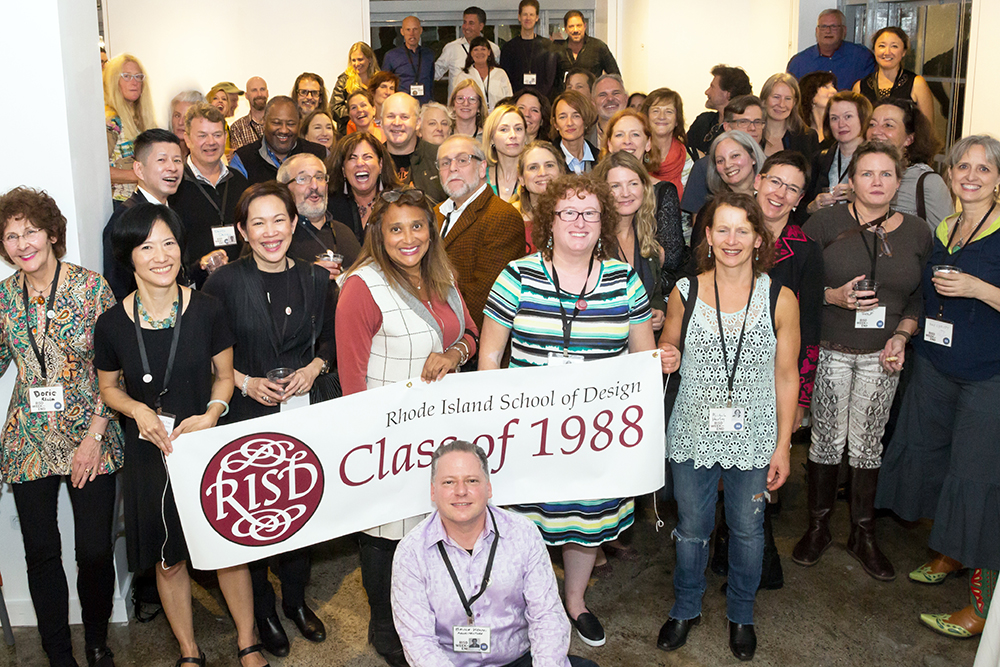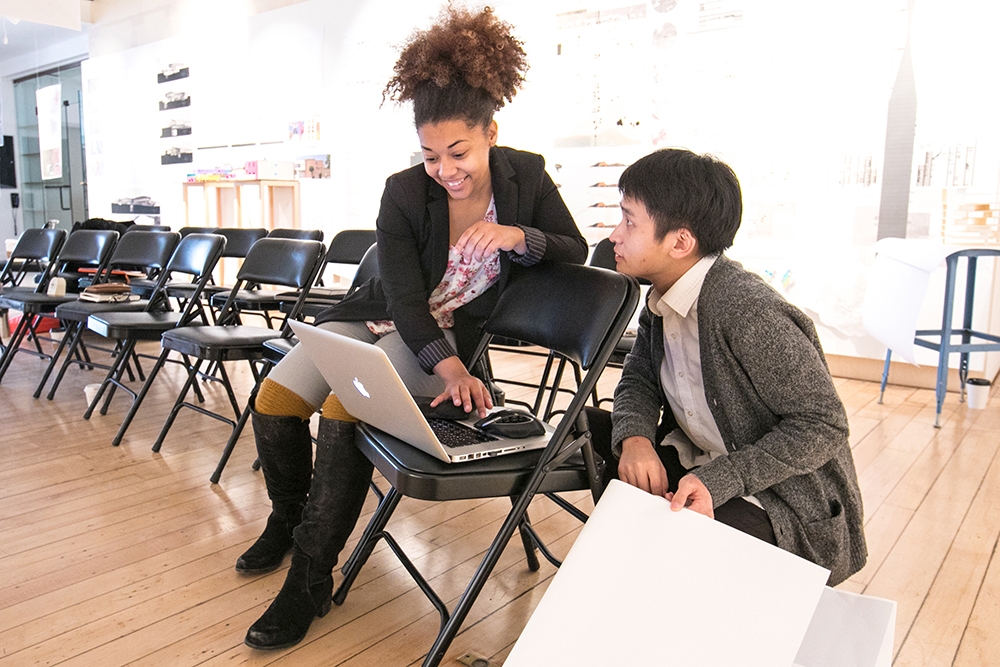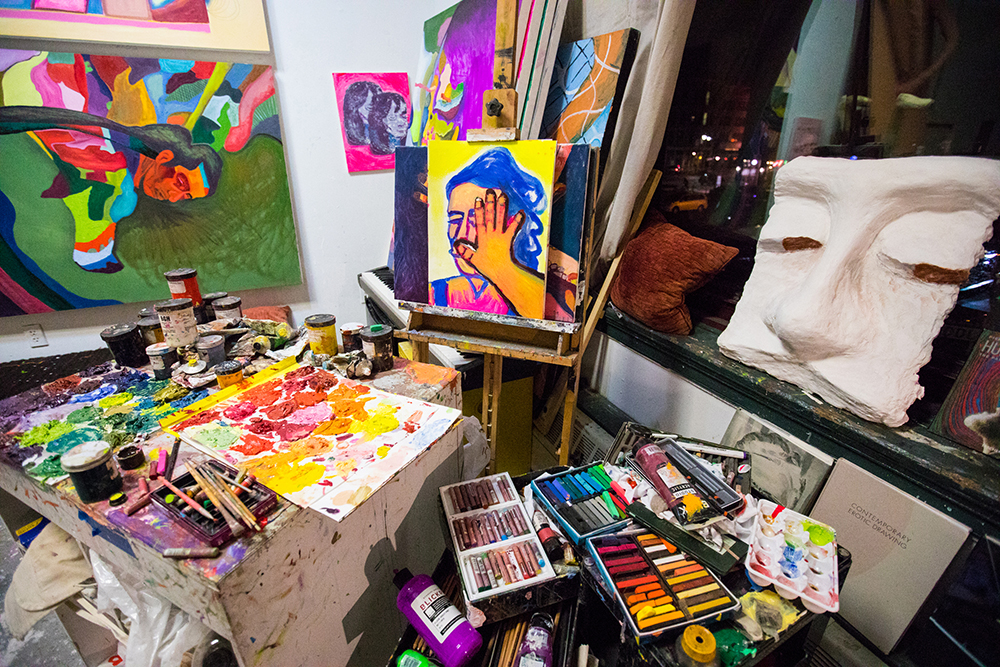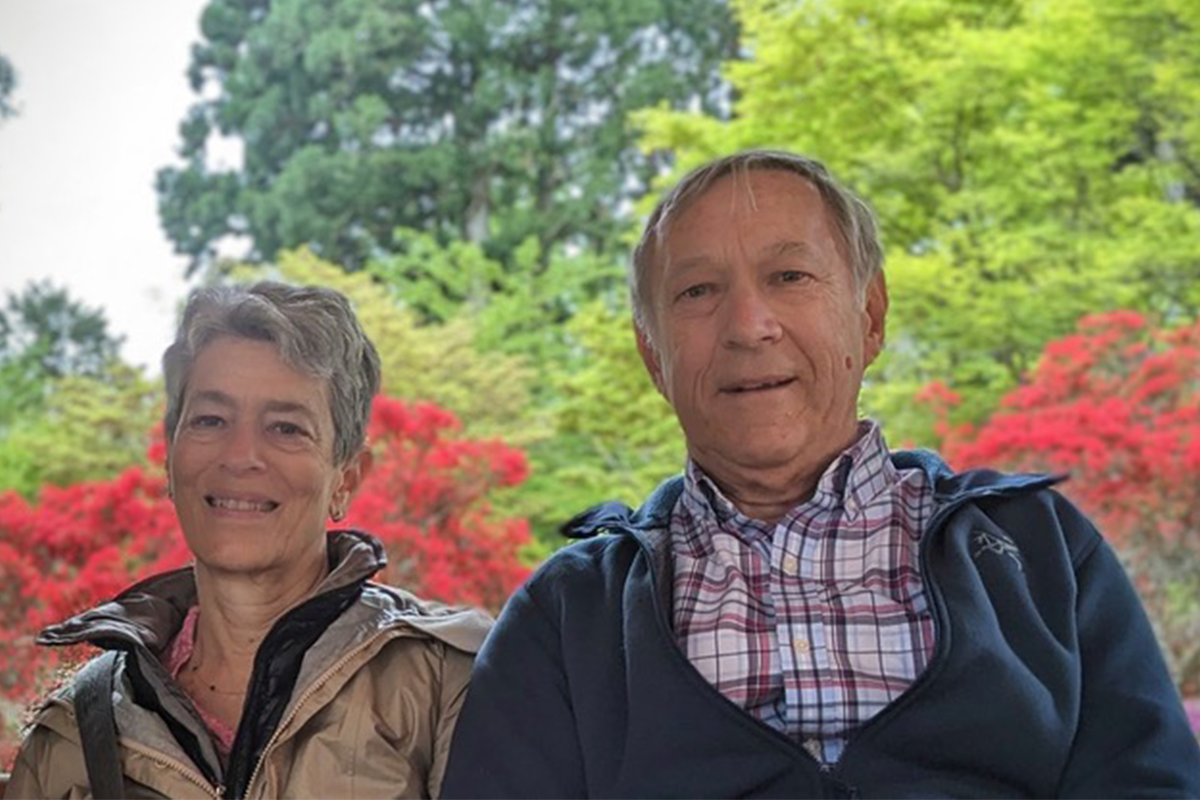
Here and Now
Through the RISD Scholars program, a community of donors makes financial aid immediately available to RISD students.
In 2012, a group of RISD alumni, families and friends joined forces to provide direct, immediate financial aid for undergraduate students in a novel way—through significant multi-year commitments that offset a particular student’s tuition over the course of their college career.
At RISD, financial aid comes from a variety of sources, including income from the endowment, the operating budget and gifts to the RISD Fund by alumni, families, foundations and corporations. The RISD Scholars program is distinct because support comes at a predictable level over three or more years and is made available as soon as it is received.
In the 11 years since the RISD Scholars program began, the initiative has supported a generation of RISD undergraduate students, helping them put aside financial concerns and focus on their creative development.
Many generous donors participate in the program, making commitments of $30,000 or more paid over three or more years. In doing so, they become members of RISD’s 1877 Society and Centennial Society. Supporters learn about RISD Scholars as the students move through their academic careers, and when possible, gather with RISD Scholars for the annual Celebration of Scholarships in the spring.
On these pages, we hear from a few of those who have made giving to the RISD Scholars program a priority.
Jessica Arner P 11 and Eli Abbe P 11 of Palo Alto, California, were the first donors to make a multi-year commitment to the RISD Scholars program.
“I think artists are a part of our society that society as a whole neglects,” Arner says. “The arts aren’t supported enough by the government, by private funders and others, so if we can support arts education and help develop artists and artisans by the same token, we are happy to.”
When their daughter Rebecca Abbe 11 GD was an undergraduate at RISD, Abbe and Arner were members of the RISD Parents Council, now called the Families Association Leadership Council. As they got to know RISD families and students, they noticed that it seemed many students were from families who could afford to pay the RISD tuition, but others struggled to juggle tuition costs, materials and living expenses. Arner had also volunteered, through the Admissions Office, to talk on the phone with accepted prospective students from southern California about what to expect at RISD. While some were curious about navigating cold temperatures and snowy winters, many were deeply concerned about affordability, an issue that drove some to consider a different school.
“So then they wouldn’t be getting the excellent RISD education,” Arner said. “They’d be going elsewhere. And let’s face it, you have a less diverse class when you have a largely privileged or wealthy student body.” Arner, a lawyer, says of giving to the RISD Scholars program, “We did it at a time when both of our kids were through college and we were done paying their tuitions. We were still in our working years, and Eli makes the analogy that it’s just like paying another year or two of tuition.”
“It’s a point that I would try to make to other parents when their children are graduating,” Abbe, a software and electronics engineer, says. “We were already in the habit of paying tuition, and it can help a student— a known person whom you hear from—immediately.”
In addition to their support of the RISD Scholars program, Abbe and Arner joined the Jesse + Helen Rowe Metcalf Society by making a bequest to the RISD Fund, which supports financial aid, immediate needs and priorities, tools for teaching and learning and social justice and equity.
Of their giving, Abbe says, “To put it in simple terms, our daughter had a great experience at RISD and it benefited her in so many ways. We wanted to help make that available to other people who couldn’t otherwise afford it. We just wanted to do this as our way of giving back and supporting people outside our family.”
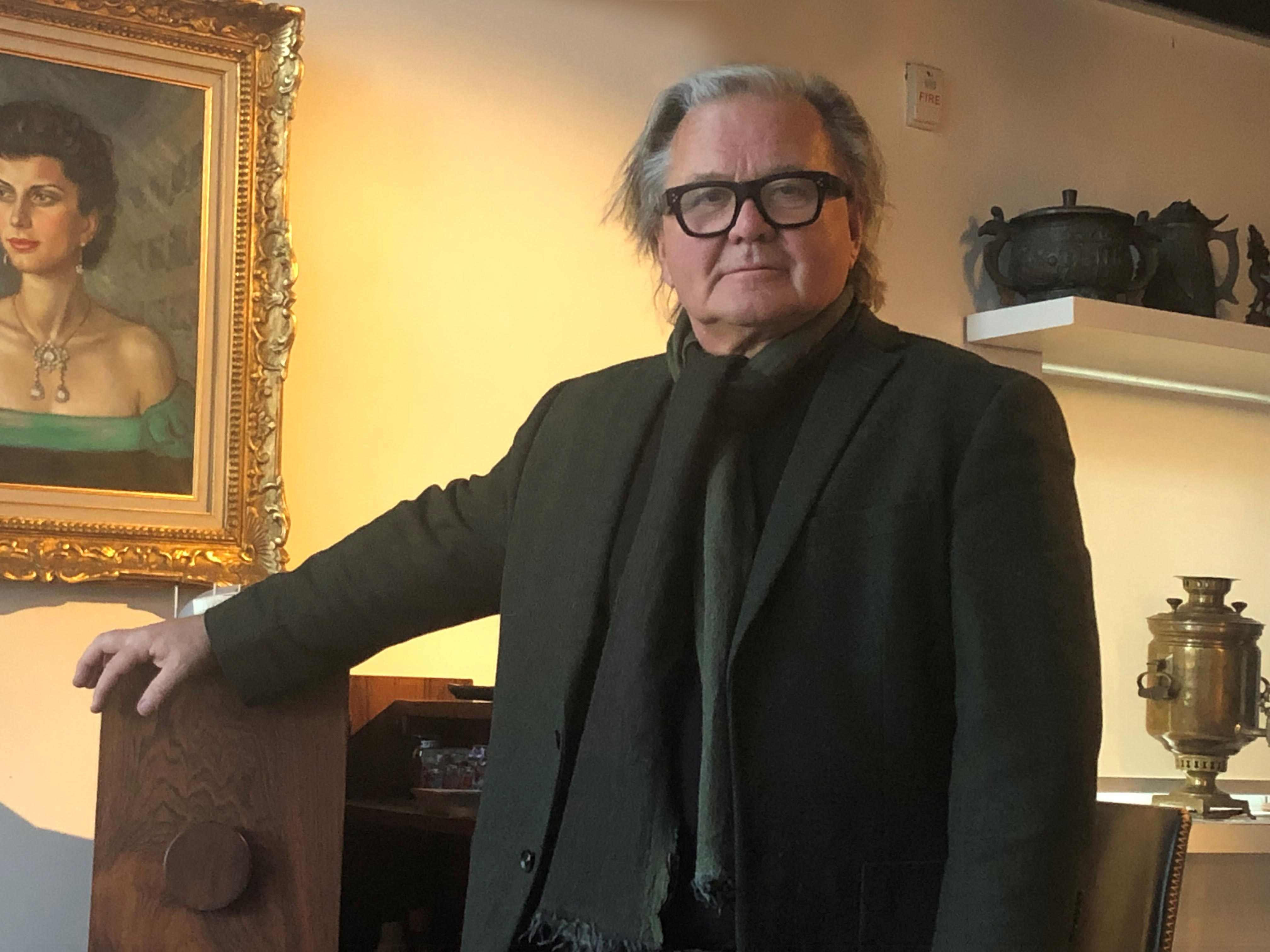
When Stephen Dynia BArch 83 was 14, he was chosen via a lottery system to enroll in an alternative high school in his hometown of New Haven, Connecticut. In addition to receiving gym credits for walking to school (which was held in the basement of a girdle factory called Smoothies Foundation Garments), the school offered a program called the Community Orientation Program, where students would visit the offices of professionals in the community. Twice a week, Dynia went to an architect’s office where he learned all about the profession.
“So that was the first real interest that I had,” says Dynia, who is now the founder and design director of Dynia Architects, with offices in Jackson Hole, Denver, New York City and San Francisco, as well as a lecturer in the College of Architecture and Planning at the University of Colorado, Denver.
After high school, Dynia was admitted to RISD’s Architecture program, but was advised not to enroll if he could not afford tuition. Just before Dynia was about to start classes at tuition-free Cooper Union, he got a call from RISD offering him a full-tuition scholarship.
Although he already had an apartment and roommates lined up in New York City, Dynia chose to attend RISD, his first choice, “for many reasons,” he says. He was persuaded by his conversations with Friedrich St. Florian, the Architecture dean at the time, that the program would give him the freedom to explore his ideas. Dynia was drawn to the industrious environment in RISD studios, which were open until 2:30 am and he was interested in studying architecture at an art school. That, he says now, has been extremely important to his career.
“To be able to draw the human figure with ease and fluidity is an amazing tool in architecture. It has translated into being able to do a sketch of a room and have it be relatively accurate just by the handeye relationship,” Dynia says. “What architecture is about is seeing something in your head that doesn’t exist yet. I think that my ability to properly proportion spaces comes from that art school education.”
Since graduating from the Architecture program, Dynia has made giving back to RISD a priority, through both the RISD Fund and the RISD Scholars program.
Discussing his motivation for giving to financial aid, he says, “Somehow, RISD found this money to give me . . . To give back is not an obligation I feel, it’s a desire.”
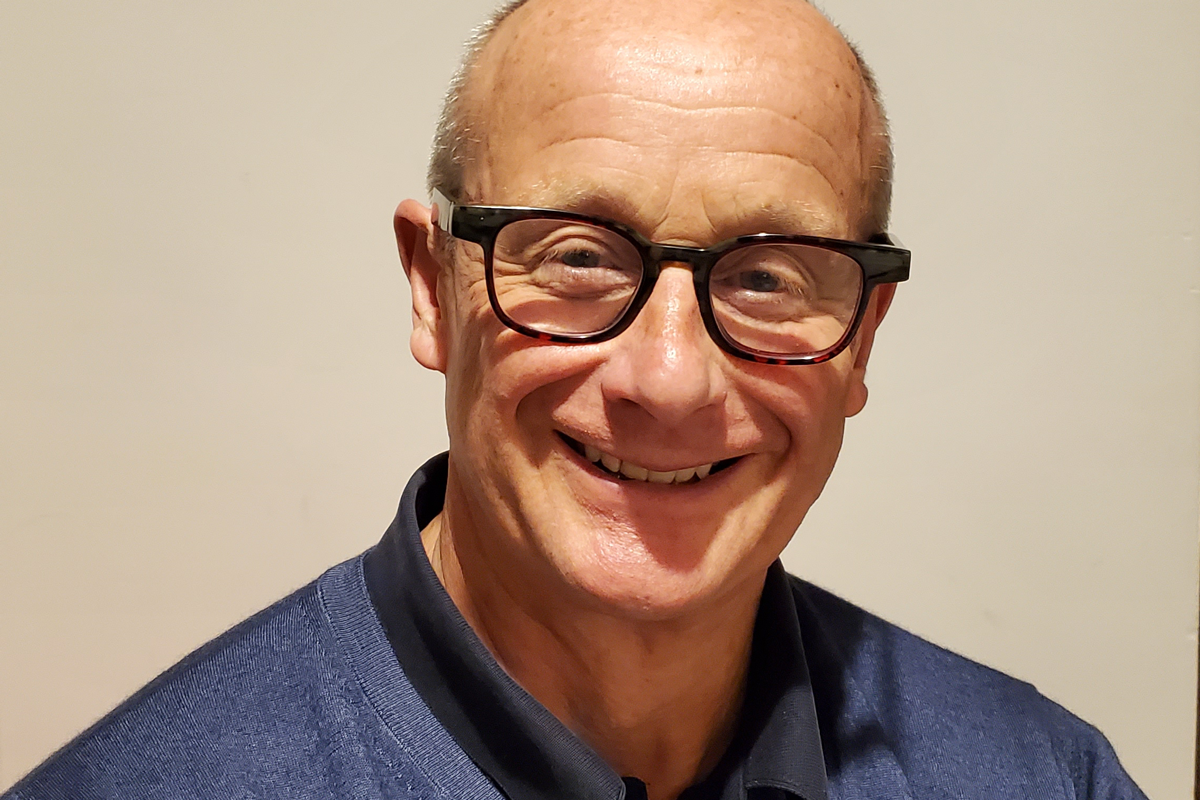
It was a telephone call from a RISD undergraduate student that first prompted Marcus Everard P 21 and Mimi Yashiro P 21 to make a gift to the RISD Fund. The couple, who live in Tokyo, give widely to charity, but grew up in cultures where public funding plays a greater role in higher education than private philanthropy does.
“Where we come from—I’m British, my wife’s Japanese—we don’t really have the same sort of culture. I give a little bit of money to my old university, and they’re very surprised I do so because nobody else does, but I like them and they can use it for a good cause,” Everard says.
Everard and Yashiro became acquainted with RISD when their son Shingo Everard 21 TX was pursuing his dual degree at RISD and Brown. Shingo’s studies at Brown focused on comparative literature, and he studied first Painting and then Textiles at RISD. Now, he is building a career in fashion in New York City.
After Shingo graduated, Everard, an investment advisor, and Yashiro made a four-year commitment to the RISD Scholars program. The couple made the gift after consulting with a RISD philanthropy officer about where their support could best be used.
The couple appreciated the RISD Scholars program’s emphasis on making financial aid immediately available, in the here and now, to current undergraduate students.
“If we can help, I’m very much happy to do so,” Everard says. “Education is really important and I think RISD does a really good job.”
Header image: Jessica Arner P 11 and Eli Abbe P 11

